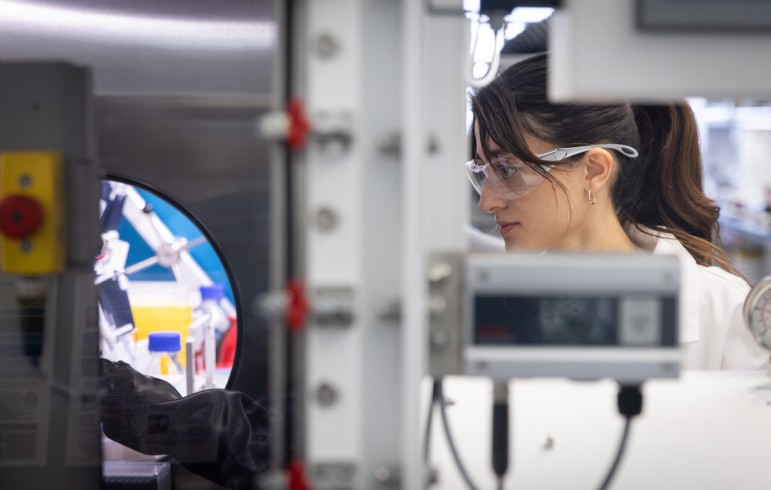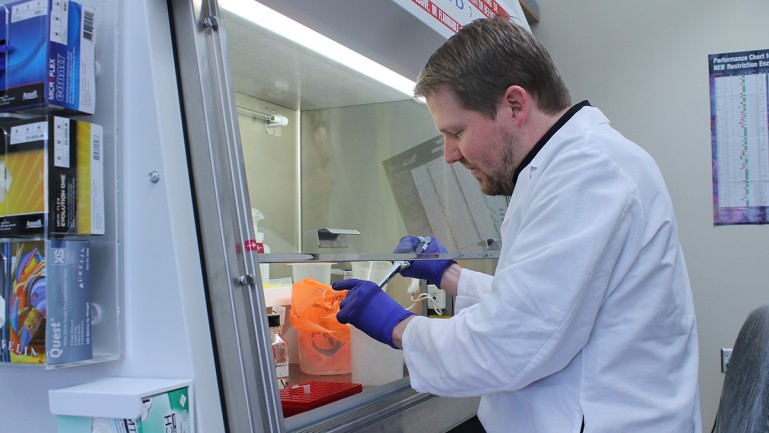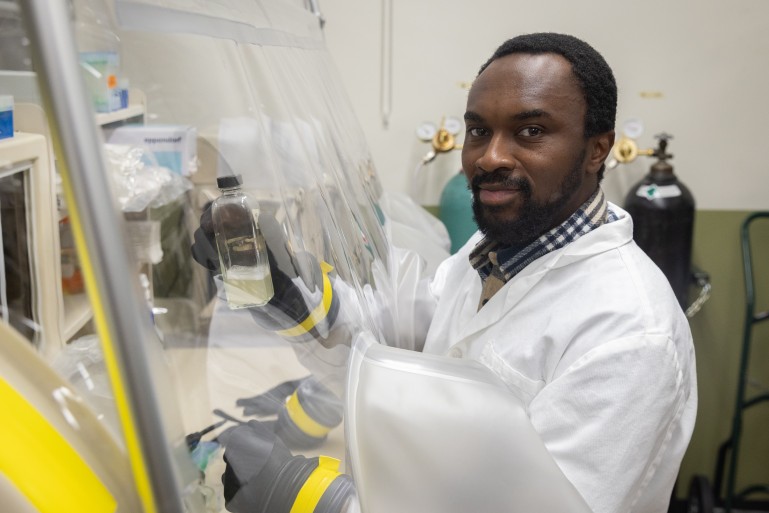Renewable energy is ramping up quickly.
In fall 2022, right after Midwestern farmers had gathered the last crops of the season, a team of CALS agronomy researchers hurried into the fields to collect samples of the soil.
How do you choose between academia and industry? How do you stay resilient in whatever position you might find yourself in?
In today's episode, Mallory Spencer, graduate student in the Thomas Lab at UW–Madison, takes us on her journey through STEM, how her undergraduate internship at the Great Lakes Bioenergy Research Center sparked her passion for exploring the bioproduct-making potential of microbes, leading her to
This week, we sat down with Becky Larson, an extension specialist and Associate Professor in the Nelson Institute for Environmental Studies at UW–Madison, as she shares her journey to becoming an expert in some of the smell
The nation’s top energy official visited the University of Wisconsin–Madison Friday to see how scientists at the federally-funded Great Lakes Bioenergy Research Center are working to turn plants into sustainable and economical replacements for fossil fuels and petrochemica
What comes to mind when you think about curiosity? For today’s guest, Sarynna Lopez-Meza, Research Coordinator at the Great Lakes Bioenergy Research Center, her curiosity is what guided her through her career.



